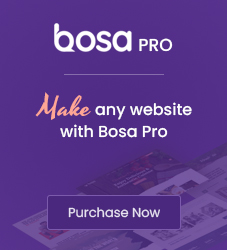Why Students Should Start a Blogger Website
Starting a Blogger website offers numerous benefits for students, encompassing both personal and professional development. Firstly, maintaining a blog is an excellent way to hone writing and communication skills. Regularly crafting blog posts allows students to practice articulating their thoughts clearly and compellingly, which is invaluable for academic success and future career prospects.
Moreover, a Blogger website serves as an effective platform for building a personal brand. In today’s digital age, establishing an online presence is crucial. By sharing well-written content on topics of interest, students can showcase their expertise, passion, and creativity. This not only helps in creating a distinct personal identity but also enhances their visibility in their chosen field.
Additionally, a blog acts as a professional portfolio. Students can present their projects, essays, and other academic or extracurricular achievements in an organized manner. This can be particularly beneficial when applying for internships, scholarships, or jobs, as it provides a comprehensive view of their capabilities and dedication.
Networking is another significant advantage of starting a Blogger website. By engaging with readers and other bloggers, students can build valuable connections with peers, mentors, and industry professionals. These interactions can open doors to collaborative opportunities, mentorship, and insights into various career paths.
Furthermore, blogging offers potential income generation through monetization options such as ad placements, sponsored posts, and affiliate marketing. While making money should not be the primary motivation, it is an added benefit that can support students financially while they pursue their studies.
Having a blog also empowers students to have a voice and share their unique perspectives on subjects they are passionate about. This can lead to greater self-expression and confidence. Overall, blogging can significantly enhance both academic achievements and extracurricular pursuits, providing a well-rounded and enriching experience for students.
Step-by-Step Guide to Setting Up and Running a Blogger Website
Starting a Blogger website is a straightforward process, especially for students new to the blogging world. The first crucial step is selecting a niche or topic that aligns with your interests and expertise. A well-defined niche helps attract a specific audience and keeps your content focused and engaging. Once you have a topic in mind, create a Google account if you don’t already have one, as it is essential for accessing Blogger.
After setting up your Google account, navigate to the Blogger website and sign up using your credentials. You will be prompted to create a new blog by entering a title and a unique URL. Choose a title that reflects your niche and a URL that is easy to remember and type.
With your blog created, the next step is to select and customize a template. Blogger offers a variety of templates that you can tailor to match your style. Customize the layout, colors, and fonts to create a visually appealing and user-friendly blog. Once your design is set, establish essential pages such as “About” and “Contact.” The “About” page should introduce you and your blog’s purpose, while the “Contact” page provides ways for readers to get in touch with you.
Now, it’s time to write your first blog post. Aim for content that is informative, engaging, and relevant to your niche. Regular updates are key to retaining readership, so develop a consistent posting schedule. Promote your content through social media platforms, email newsletters, and other channels to expand your reach and attract new readers.
Engagement with your audience is crucial. Respond to comments and feedback to build a community around your blog. Additionally, optimizing your blog for search engines (SEO) is essential for visibility. Use relevant keywords in your posts, optimize images, and ensure your blog is mobile-friendly. Utilize analytics tools to track performance and understand what content resonates with your audience.
Lastly, explore monetization options such as Google AdSense and affiliate marketing to generate income from your blog. By following these steps and continually refining your approach, you can successfully set up and run a Blogger website that attracts and engages readers.




